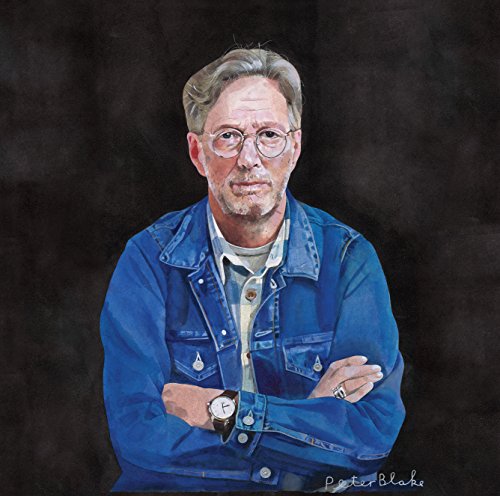
Eric Clapton
I Still Do
Release Date: May 20, 2016
Genre(s): Pop/Rock, Contemporary Pop/Rock, Album Rock
Record label: ADA
Music Critic Score
How the Music Critic Score works
Buy I Still Do from Amazon
Album Review: I Still Do by Eric Clapton
Fairly Good, Based on 8 Critics
Based on rating 4/5
So what do you expect? Scorching solos from guitar legend a la Layla? Cosy ballads from smooth-voiced crooner in the style of Wonderful Tonight? Happily, both groups will be reconciled on I Still Do. Crisply produced by Glyn Johns, working with EC for the first time since Slowhand, the record proves a remarkably rewarding listen. Blistering guitar ushers in Leroy Carr’s Alabama Woman Blues, while Clapton’s ol’ buddy JJ Cale is represented by the suitably slow ’n’ easy Can’t Let You Do It and Somebody’s Knockin’.
Based on rating 4/5
Slowhand still does. And this time there’s ???no messing around. While his live albums have maintained a remarkable degree of consistency and professionalism, Eric Clapton’s studio albums have sometimes wavered in comparison. Essentially, Clapton needs to be challenged in the studio, something that’s easier said than done.
Based on rating 7/10
When Eric Clapton first joined forces with Glyn Johns in the late 1970s to produce Slowhand, few knew the influence that their joint effort would have on the world of blues, rock ‘n’ roll, and music at large. His emotive, brooding style of guitar playing became a signature sound to replicate, but its roots always came rolling back to Clapton, Johns, and their original piece of work. Now, 39-going-on-40 years after their first and previously only collaboration, the duo are back together again on Clapton’s latest and potential last, I Still Do.
Based on rating 7/10
Reuniting with producer Glyn Johns, the steady hand who guided Slowhand back in 1977, doesn't provide Eric Clapton with much of a jolt for his 23rd studio album, but it does provide the veteran guitarist with no small degree of nicely weathered warmth. Such mellowed good vibes are the calling card of I Still Do, which otherwise proceeds along the same path Clapton's records follow in the 21st century: he blends covers of well-worn blues standards with a couple of J.J. Cale tunes, a few old pop standards, a Bob Dylan chestnut, and original songs that draw upon aspects of all of these.
Based on rating 3/5
Eric Clapton's 21st century output has been erratic, but his best efforts have come from root-tending: his latter-day B.B. King collaboration Riding With The King, the mid-00's Cream reunion and Robert Johnson tribute, the late '00s tour with Blind Faith kin Steve Winwood, the 2014 J.J. Cale homage. Clapton's latest follows suit: a revival meeting with classic rock swami Glyn Johns, producer of his 1977 hit Slowhand, a set of swampy blues and well-chosen covers that finds fresh angles on the guitarist's perennial obsessions.
Based on rating C
With the passing of Glenn Frey, Prince, and David Bowie, the remaining stars of their level and era of rock music become that much more precious. Each record gains some vital gravitas, a reminder that it could be not only the last album from that particular legend, but of an entire generation of legends. Or, at least some semblance of logic would suggest that, but you wouldn’t know it from listening to the latest from Slowhand himself, Eric Clapton.
Based on rating 4/10
Three years ago I saw Eric Clapton in concert for the first, and probably last, time at his spiritual home, the Royal Albert Hall. I grew up with Clapton, my mum’s hero: 24 Nights and Journeyman were on near-constant rotation in my dad’s car when we went to visit grandma and granddad for Sunday dinner. One of the first songs I tried to learn on the guitar was ‘Bad Love’ ('tried' is the operative word there).
Opinion: Average
Expectations ran high for this album reuniting Clapton with producer Glyn Johns, who helmed Clapton’s late ’70s records including the global No. 1, “Slowhand.” But the results are mixed. Half of “I Still Do” falls into the easy-listening, cruise-control blues of Clapton’s later career, a long way from his fiery days with Cream and Derek and the Dominos.
'I Still Do'
is available now

